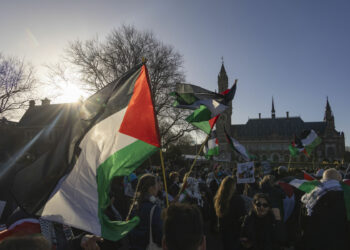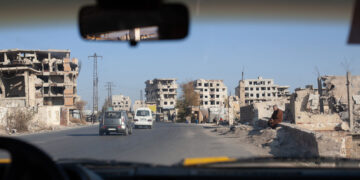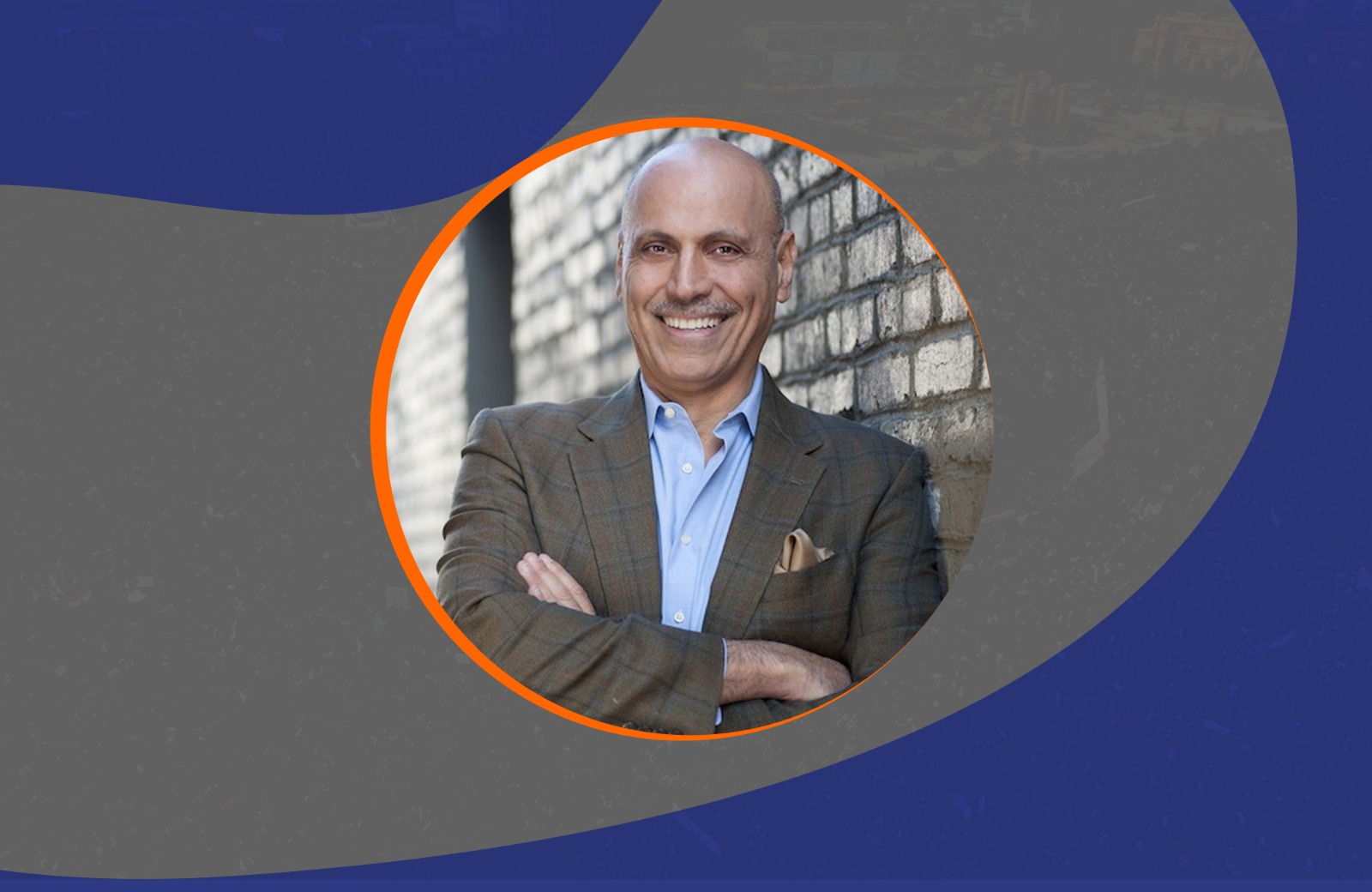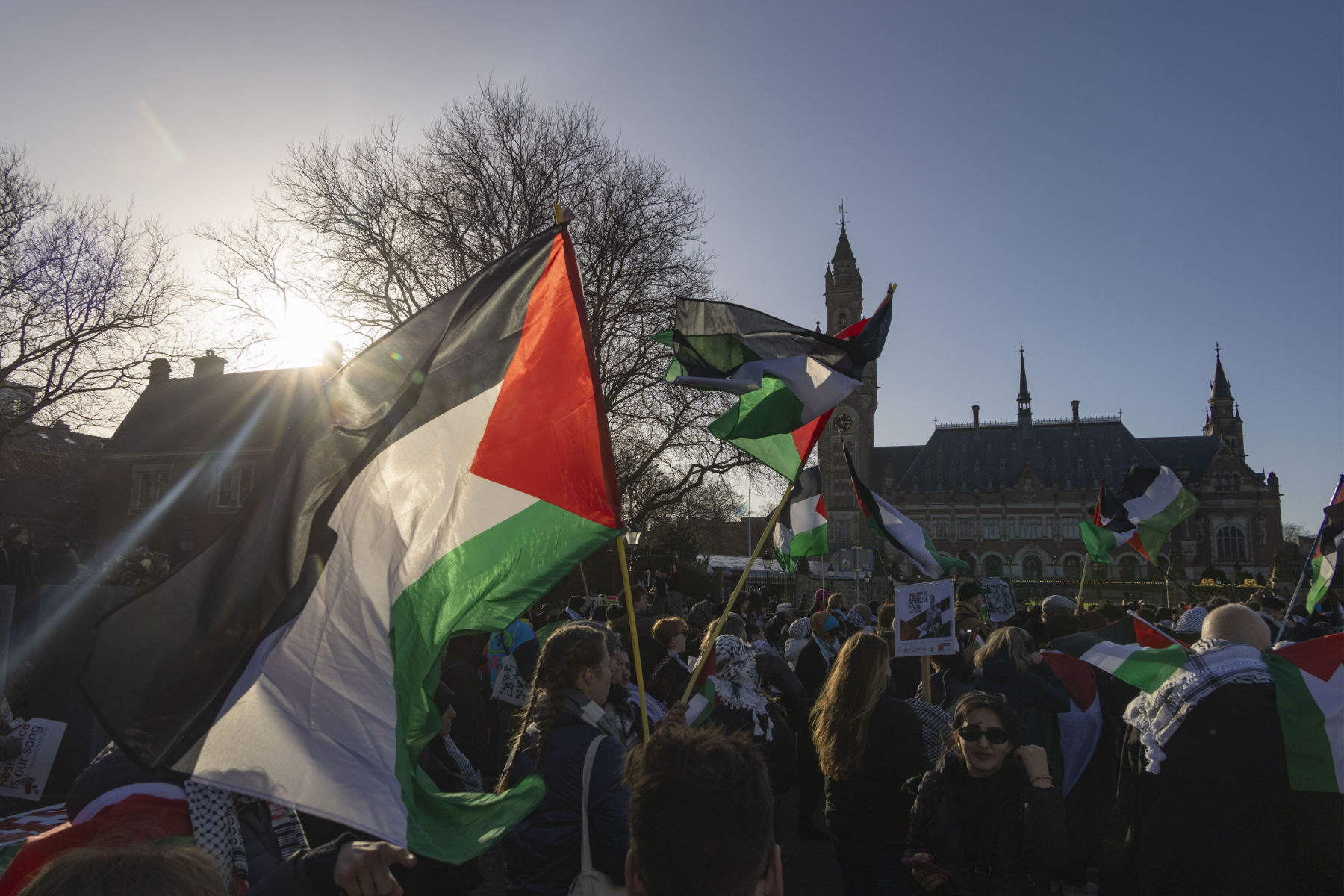Samuel Moyn is the Chancellor Kent Professor of Law and History at Yale University. His latest book is Humane: How the United States Abandoned Peace and Reinvented War.
Editor's note: This article is adapted from a paper presented at a workshop, "Human Rights Go to War," that was convened by DAWN and co-sponsored by the Schell Center for International Human Rights at Yale Law School.
Since political science has shown that the best way to promote human rights is not to have wars, one might have thought that antiwar activism would be the primary form of human rights activism. It isn't. Instead, the mainstream position—shared by Amnesty International, Human Rights Watch and most other such groups—is neutrality on the initiation and continuation of war, coupled with factual reporting on violations of international humanitarian law, or the laws of armed conflict, concerning the conduct of hostilities.
This posture was a choice rather than a necessity, and one with important ethical and political stakes—and it was and is still debatable. There are two questions worth posing for the future: Should there even be a default in favor of this mainstream position? And if there should be such a default, when, if ever, should it be lifted?
The past 50 years of this more or less absolute default are exceptional in history, since most advocacy groups in modern times have prioritized controlling war itself rather than stigmatizing crimes within war. And the current reversed position among advocates has some increasingly obvious downsides.
*
Before Amnesty, Human Rights Watch and other groups set the current priorities, the focus of advocacy around armed conflict looked very different than it is now, both in civil society and among lawyers. Over more than a century, there had been discreet activism by the International Red Cross to humanize war. But as I tried to show in my recent book, Humane: How the United States Abandoned Peace and Reinvented War, there was once a much more open debate about the risks of humanizing warfare—which made the Swiss agenda merely one among others. In our time, there emerged a new configuration, and any comparable debate as in the past was pushed to the margins.
The common sense after World War II, in particular, was straightforward—and nearly the opposite of our own today. The gateway to initiating or continuing war (the morality and law now called the jus ad bellum) was so important to erect and assiduously patrol precisely because passing through it illicitly not only led predictably to other war crimes (violations of the jus in bello, whether or not ever punished). It also allowed for the death and injury of combatants in the millions, and of civilians to some perfectly legal extent or other, as well as to allowable physical destruction and other massive costs, including the opportunity cost of spending money on guns rather than welfare. Perhaps worst of all, it led to the aftereffects of destabilization that war often involves, sometimes for decades. As far as anyone can tell, more people may have died in the so-called war on terror (for example, in Iraq and Libya), not because they were directly targeted or even killed collaterally by Americans and their allies, in conformity with or in violation of international humanitarian law, but rather due to disorder and ruin.
No wonder, then, that concern with aggressive initiation of war, as at the International Military Tribunal at Nuremberg, once seemed the most important thing by far. "Once the evil of war has been precipitated, nothing remains but the fragile effort (…) to limit the cruelty by which it is conducted," Herbert Wechsler, the leading American legal academic of his day, observed in 1947. "Of these two challenges, who will deny that the larger offense is the unjustified initiation of a war?" The question was rhetorical; the response was obvious. This prioritization of keeping war from happening or stopping it once it broke out lasted in mainstream debate in the global north as late as Vietnam. It was always, and remains today, the priority in the global south.
Why the shift among advocates to reducing cruelty within the conduct of war? The reasons have to do with changing forms and politics of war. Controlling force appealed among influential and wealthy (and Christian and white) publics after wars between great powers in the global north in the first half of the 20th century. It made less sense in the same communities in an age of civil war in and great-power policing of the global south (wars of non-Christians and non-whites) in the second half of the 20th century, and especially since the Cold War ended.
That Russia's Vladimir Putin alone, initiating a European war, has reawakened the concern for aggression in a few quarters—though not for many mainstream human rights organizations to date—is interesting, to say the least.
Since political science has shown that the best way to promote human rights is not to have wars, one might have thought that antiwar activism would be the primary form of human rights activism. It isn't.
- Samuel Moyn
This reversal is not merely of historical interest. It looks like it implicates some big and frequently unacknowledged risks.
Let's begin with something undeniable. Abstaining from criticizing an activity, while struggling to clean it up, could help entrench or perpetuate it. It is not controversial that this could happen. Whether it does in any given field or instance is really an empirical matter. It would be wrong to argue that humanizing such practices protects or perpetuates them always, but equally wrong to pretend it can never happen. Some of the conditions of legitimation for political evil are that appearances are managed better by those directing it—and advocacy could affect those appearances.
In fact, this obvious claim is already widely accepted. The original humanitarian advocates in trans-Atlantic political affairs struggled to humanize chattel slavery, and it was expectable that, as historian Winthrop D. Jordan wrote, "as slavery became less brutal there was less reason why it should be abolished." We can debate whether pushing for less brutal forms of slavery was worth doing anyway, and there is no absolutely clear answer. A more recent example makes the same point. Demanding less cruelty in the administration of capital punishment could interfere with efforts to abolish the death penalty as such, or just to reduce its incidence. To their credit, reformers in this domain have been uniquely ready to weigh the pros and cons of their strategies, accepting the reality of tradeoffs, and sometimes refusing to tinker with the machinery of death when they proved too costly.
It is less common to say so, but the same calculus might obtain when it comes to international humanitarian law. Emphasizing the laws of armed conflict, especially when human rights groups abstain from comment on the justice or legality of war itself, could decrease the likelihood of success of efforts to stop wars not worth fighting. It could even abet their perpetuation.
It is fascinating to me how abusive and evasive certain responses to the obvious possibility are. It is as if advocates of wartime constraint sometimes are unwilling to accept even the mere possibility that there are costs and side-effects to their ethical action. Of course, it might make sense as part of a public relations pretense to the effect that a genuine ethical and strategic problem for advocates simply doesn't exist. In private, however, such denials ought to be unacceptable.
*
Sometimes the stated rationale for the adoption by human rights organizations of a default neutrality on war is that jus ad bellum rules are just too controversial or refractory compared to the allegedly clear and precise requirements of the jus in bello. Others suspect that the actual reason for the stance is that attacking wars themselves would seem "political" and risk marginalization or threaten relationships with powerful actors. Not much turns on who is correct on this point; either way, the default of neutrality is not self-evident. But it's still worth a brief discussion.
It's my own view that the latter is the likeliest explanation for neutrality. The record of some advocates supporting humanitarian intervention is a reminder that there can be exceptions to neutrality when it matches the political winds. And are the standards of international humanitarian law, while no doubt more detailed, really less subject to contestation and interpretation? It is not a bug but a feature of both bodies of law—most definitely including rules of the conduct of hostilities—that states make the relevant treaties and get a continuing say on what they signed up for. The U.S. Department of Defense has a Law of War Manual, recently published, that diverges on a series of points from what the International Committee of the Red Cross and many commentators believe the law requires. Whose view prevails about the meaning of international humanitarian law is no less subject to political warfare than norms of cross-border intervention.
Even if opposing wars is harder for advocacy groups because it is harder to establish that the resort to force is illegal—either as a matter of principle or the nature of the rules—then Putin has helpfully reminded the world just how flimsy the justifications of at least some interventions are. There are probably other clear violations, like the Iraq War, in the same unholy league. And if so, then there is no reason I can see for any absolute or eternal injunction to steer clear of speaking out on the initiation and continuation of wars. Indeed, the emergent concern to control or manage the risk in some cases that activism could humanize endless wars or occupations points the other way.
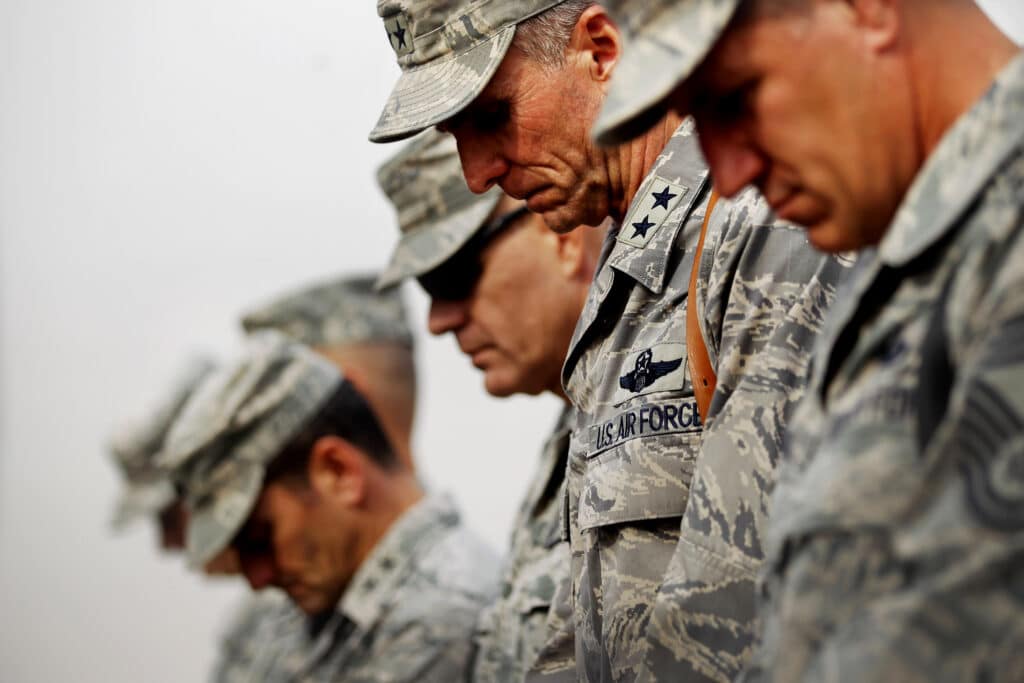
But even if the overall priorities in the advocacy sector have shifted and skewed in recent decades, and even if there is an obvious risk in the new configuration, it doesn't settle what any individual organization or person should do. Some advocates can and should adopt the goal of humanizing the relevant vile practice of war, no matter what. It is valuable to do so in its own right, and perhaps abolishing or controlling the outbreak or perpetuation of wars ought to be somebody else's problem. Indeed, perhaps some forms of the cross-border war, regulated suitably, are defensible or even imperative. (Not many believe this any longer when it comes to chattel slavery or the death penalty, no matter how humanely organized. But many people do think it applies to domestic policing or "just wars.")
Such a response calls for more sophisticated arguments challenging the mainstream default among humanitarian advocates today not to concern themselves with the justice or legality of the wars they monitor for war crimes. I will offer two.
The first argument is that advocates have to control or manage the risks of the focus and strategy they choose. Life is about owning your necessary selectivity. You can't do everything, and everyone is doing one thing rather than another—for example, monitoring the inhumanity of war rather than regulating its outbreak. But if, as the obvious claim has it, there could be a risk of entrenching the ongoing practice you humanize, then it should follow that you should confront and deal with the risks you help create. It is not going to be enough to say that advocates get credit for making a dent in evil but no blame if they participate in the conditions for its perpetuation. At the limit, this means that in certain situations, the bracketing of concern with the ethics and legality of war to focus on its conduct may need to be revisited.
Suppose, hypothetically, that a war breaks out that involves minimal violations of international humanitarian law on one or both sides. Activists might still plausibly monitor what violations still occur; every single violation is regrettable. But suppose, again hypothetically, that this war is blatantly and noxiously illegal in its initiation or continuation. This is the kind of situation in which restricting attention to the conduct of hostilities—which would involve certifying it as more or less humane—is likely to be morally questionable. A more plausible scenario is to ask what happens if a reduction of brutality in war is offset by the remaining brutality in a war that is given a new lease on life by seeming less noxious. Such scenarios might prompt an Amnesty or Human Rights Watch to call the war itself into question, much as it or its leaders considered exceptions to the default rule of neutrality when it came to certain humanitarian interventions. This is a hypothetical limit case. My point is that neutrality isn't written in the stars, but instead either makes situational sense or doesn't.
If your response to the hypothetical is that any (even minimal) infractions of international humanitarian law justify preserving neutrality in order to indict them, including in the absence of other actors condemning the war itself, then it looks like a clear case of moral error. Sometimes, at least, the moral and material consequences of the war itself could be the worse problem—not legal infractions within it. This is not only because international humanitarian law to date is so permissive, and often too permissive, but also because it was not designed to control most of the wrongdoing that the initiation of war involves. Again, that means combatant death without limits, civilian death within limits, budgetary and opportunity costs, and medium- to long-term legacies.
Nothing forbids human rights organizations from making shifts when it turns out that the risks of selective advocacy—in this case, condemning not the existence as such but instead the residual inhumanity of war only—seem glaring. It is mostly just a matter of the advantages and disadvantages you calculate in alternative strategies and tactics—and your changing political resolve.
More people may have died in the "war on terror" not because they were directly targeted or even killed collaterally by Americans and their allies, in conformity with or in violation of international humanitarian law, but rather due to disorder and ruin.
- Samuel Moyn
The second argument is more radical. True, advocates are inevitably selective in their causes, and doing other things is often somebody else's problem. From the fact that international humanitarian law is the exclusive concern of human rights groups, not the justice or legality of the underlying wars, it might just follow that it is up to other outfits to control aggression if they can. The best response to this is that advocates are citizens and human beings too, and individuals and groups also have responsibility for overall outcomes in our world.
Consider a parable. A butterfly flits about a jungle in which the apex predators have cleared all competition. Annoying and perhaps even frustrating the predators, the butterfly might also prettify the reality of their endless rampaging. No, it is not the butterfly's fault that apex predators rule. No, it is not the butterfly's responsibility to oppose the predators; the predators probably wouldn't care that much if it tried. But, just by dint of being pretty, can the butterfly really banish complaints about what the ecosystem really is like?
I have in mind in this parable the political ecology of the lifespan of Amnesty, Human Rights Watch and later groups. Antiwar movements died as they rose. There may be some relation between these facts. But even if not, the second argument I want to suggest in response to claims that advocates are defensibly selective in their causes is that advocates, like everyone else, are responsible in some sense for everything that happens.
In an alternative and attractive world compared to ours, human rights groups could coexist with committed movements concerned to control illegal acts of force (not just Putin's alone, of course). But that is not our world. In our world, human rights groups flit about the jungle.
We are on familiar terrain here. As I asked in an earlier book, Not Enough: Human Rights in an Unequal World, in the absence of socialist parties and trade unions, whose problem is class inequality if human rights law "merely" deals with distributional insufficiency through economic and social protections? The idea of distributive equality died in the era of human rights activism. The age of Amnesty, Human Rights Watch, et al. is also the age of the victory of the rich. That doesn't mean there is some conceptual tension between human rights activism and egalitarian concern, let alone that human rights are to blame for increasing hierarchy. But even for defensibly selective advocates, the world of which their advocacy is a part should matter.
That means that, insofar as advocates are people too, "responsibility for justice" falls on them and especially their audiences and funders, and no defenses about the inevitable selectivity of picking causes or the constraints of some role morality will allow them to dodge the truth about the increasingly warlike ecology in which they live. (Obviously, the same is true of academic commentators, who do a lot less than advocates do to make the world a better place.)
*
It might be that the risks I am highlighting in mobilization for humanized versions of immoral practices like most wars are not just contingent but also rare. In most cases, therefore, the risks are not worth taking seriously. In that sense, I am raising a potentially small problem.
But in certain situations, it is potentially large. I do believe that advocates set up President Barack Obama's perpetuation of the war on terror in new form. By making it seem as if brutality (torture, etc.) was the main defect of the war, advocates paved the way for a less brutal but enduring war. It was heartening, on the 20th anniversary of Sept. 11, 2001, to watch certain advocates acknowledge this fact, at least if insiders rather than "outsiders" raised the concern. But the really heartening thing would be a more open and serious debate about the current mainstream default among human rights organizations to adopt neutrality on war and peace.
If there is learning from this and other experiences, then it would seem that human rights organizations might revisit that default neutrality on war and peace, to determine whether it deserves to be lifted now and then—or even entirely reset.
Obviously, doing so would require a major shift—and it is something that could only happen with generational change, as new blood enters the various groups and new leadership takes charge.
Some smaller steps in the meantime could include the following: First, commissioning studies about exactly how much compliance with international humanitarian law has been gained by the default, and whether those gains have been offset by the risks of enduring war. Second, developing a policy that, in an ecology featuring little antiwar activism and a mainstream default in favor of humanizing violence, a particular group might experiment with lifting the default to see how the configuration of benefits and costs changes. (It is worth noting that, in a historic first, Amnesty International has called out Russian aggression this year.) Third, either ruling out any advocacy of humanitarian interventions or, lifting the default, seeing the credibility of endorsing some as linked to the possibility of condemning other interventions, including ones falsely advertised in humanitarian terms. And finally, someday, expanding the remit of advocacy beyond even the condemnation of some formal interventions to include the arms trade and proxy wars—since, like most wars, they almost never improve and generally set back human rights outcomes and other important values.


















